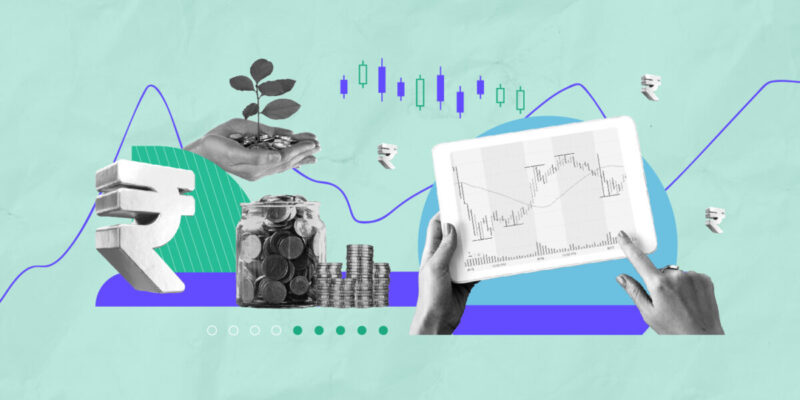The comparative profitability of a demat account and a trading account hinges on a myriad of factors, reflecting the diverse nature of investment strategies, market conditions, and trading skills. A prudent first step is to delve into comprehensive research, including staying informed about market dynamics like the IRFC share price, which can significantly influence investment decisions. Here are key considerations for both types of accounts:
Demat Account:
Profitability in a demat account is intricately linked to long-term investments, emphasizing the holding of shares, bonds, or mutual funds over extended periods. The potential appreciation of the value of investments can generate returns through capital gains, dividends, or interest payments.
Long-term investors adopt a strategy of selecting fundamentally strong stocks or investment instruments and holding them for an extended period to benefit from potential growth and income generation. It is always a good deal to know about IRFC share price before you invest.
Trading Account:
Conversely, profitability in a trading account is intrinsically tied to active trading and exploiting short-term market fluctuations. Traders endeavor to generate profits by buying securities at a lower price and selling them at a higher price within a relatively short time frame while you enjoy the buzz around the IRFC share price.
The success of trading relies on an amalgamation of factors such as market knowledge, technical analysis skills, adept risk management strategies, and the ability to make quick and informed decisions. It’s imperative to acknowledge that trading in the stock market entails risks, and not all trades culminate in profits. Market volatility, unforeseen events, and various other factors can significantly impact trading outcomes.
Profitability in a trading account is contingent upon the trader’s proficiency in identifying opportunities, adeptly managing risks, and executing trades with precision. The dynamic nature of trading demands a proactive approach in monitoring market conditions and responding to changes swiftly. Consider checking more about the IRFC share price only to start things right
Ultimately, the choice between a demat account and a trading account should be a reflection of individual investment goals, risk tolerance, and trading preferences. Passive long-term investors may find a demat account more suitable, whereas active traders, willing to diligently monitor the market and undertake calculated risks, might opt for a trading account and then check the IRFC share price to move ahead to invest.
Before making investment decisions, it is advisable to undertake thorough research, gain substantial knowledge about investing and trading, and seek professional advice. Additionally, factors such as fees, charges, and the reputation of service providers should be carefully considered when making the decision between a demat account and a trading account. Once you decide between the two you can check about the IRFC share price and then proceed.
It is crucial to note that the profitability of both demat and trading accounts is subject to substantial variation based on individual circumstances, prevailing market conditions, and the nuances of specific investment strategies. As such, a nuanced and informed approach to decision-making is paramount for achieving success in the complex landscape of financial markets while considering the idea about the IRFC share price.







